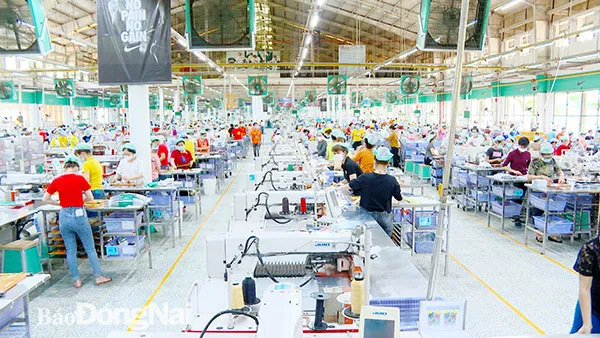
He emphasized that the U.S. stance is not a reflection of Vietnam's economic structure but rather stems from other underlying factors. Dr. Kiên also highlighted the potential positive outcomes of this decision, urging both Vietnamese management agencies and businesses to seize this opportunity to push for further progress.
JOURNALIST: - Dr. Kiên, 72 countries around the world have already recognized Vietnam as a market economy. Why has the United States, the world's largest economy, not done so?
Dr. NGUYỄN ĐỨC KIÊN: - It’s true that many countries have recognized Vietnam as a market economy, and this recognition has been in place for quite some time. For instance, Singapore and ASEAN nations acknowledged this status 17 years ago, in 2007. Australia, New Zealand, and South Korea followed suit about 14 to 15 years ago, while Japan did so 13 years ago, in 2011. Even more recently, in 2023, the United Kingdom joined the list.
These countries recognized Vietnam as a market economy based on facts and the mutual benefits it brought to their enterprises and consumers in trade relations with Vietnam. Therefore, the U.S.'s reluctance to grant Vietnam this status is not due to a lack of a market economy in Vietnam. Instead, it is primarily driven by pressure from certain interest groups within the U.S. These groups do not want Vietnamese goods to compete on equal footing with American products and prefer to use non-market mechanisms to apply pressure on Vietnam.
- How does the U.S. decision affect Vietnam and its businesses?
- The main consequence of the U.S. not recognizing Vietnam as a market economy is that Vietnamese companies' actual production costs are not acknowledged. Instead, the U.S. uses a "surrogate country" methodology to determine tax rates, often resulting in rates that are many times, even dozens of times, higher than the normal rates. Essentially, this leads to continued discrimination against Vietnamese goods exported to the U.S., with the country frequently subject to anti-dumping and anti-subsidy investigations.
Despite this, the economic relationship between Vietnam and the U.S. remains strong. In 2023, the U.S. was Vietnam's largest export market, with an export turnover of $97 billion, accounting for 27% of Vietnam's total export turnover. Key industries like textiles, footwear, wood and wood products, and seafood contribute significantly to this, with the U.S. market accounting for 43%, 35%, 54%, and 17% of the total export turnover for these industries, respectively.
Even though the U.S. is not one of the largest direct investors in Vietnam, its influence is still significant. The "U.S. value" in foreign investment in Vietnam is substantial, often through the operations of multinational companies headquartered in other countries. For example, giants like PepsiCo and Coca-Cola, although based in the U.S., manage their investments in Vietnam through their Southeast Asia headquarters in Singapore. Furthermore, companies in sectors like electronics, footwear, and garments typically integrate Vietnam into their global production chains by requiring suppliers to manufacture in Vietnam rather than directly establishing factories there. Such investment in value chains can reach tens of billions of dollars.
Interestingly, there has been growing support within the U.S. for recognizing Vietnam as a market economy. Over 40 organizations, individuals, and business and trade associations in the U.S., many of which represent U.S. enterprises, have recently expressed strong support for this recognition.
- Given the U.S. announcement, what do you see as the future of FDI flows from U.S. companies into Vietnam?
- The outlook remains positive. We’ve seen a steady stream of delegations of U.S. businesses and prominent business leaders visiting Vietnam. This interest is reinforced by the strong bilateral relationship between Vietnam and the U.S., which has recently been elevated to a Comprehensive Strategic Partnership.
Moreover, international organizations have consistently given positive assessments of Vietnam's economic growth prospects, both in the short and long term. The National Assembly and the Government of Vietnam have been persistently working to improve the investment and business environment, a trend that has continued over the years. A particularly convincing example of this is the Government’s introduction of a tailored policy package for FDI enterprises in response to the global minimum tax policy.
- You mentioned earlier that every decision has two sides. What is the positive side of the U.S. not recognizing Vietnam as a market economy?
- The decision creates pressure, but pressure can be a catalyst for improvement. It motivates both state management agencies and the business community to intensify their efforts to enhance the investment and business environment. This is something we have been working on, but now we must accelerate our pace and act more decisively.
In the long term, just because the U.S. hasn’t recognized Vietnam as a market economy yet doesn’t mean it won’t in the future. Relevant agencies, especially the Ministry of Industry and Trade and the Ministry of Planning and Investment, need to thoroughly study and analyze the arguments presented in the U.S. Department of Commerce's Vietnam Economic Assessment Report. By doing so, we can continue to refine our case and request that the U.S. Department of Commerce review Vietnam’s market economy status sooner rather than later.
- Thank you very much.




















